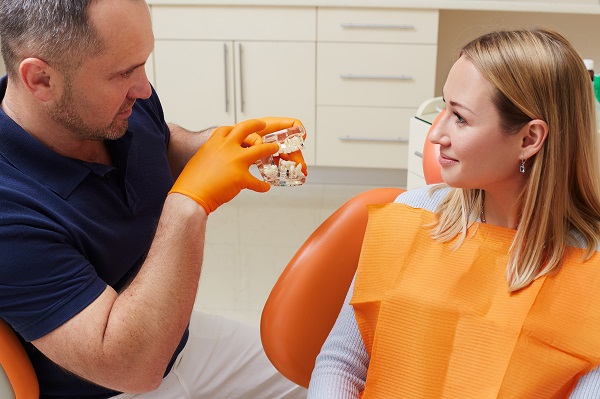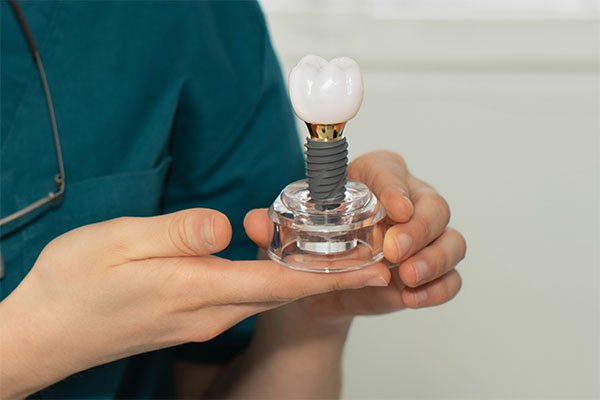Common Causes of Root Canal Pain

Root canal therapy is a dental procedure used to fix teeth with damaged pulp tissues. The term pulp refers to the soft tissues that are contained in the pulp chamber, like nerves and connective tissues. This part of the tooth is sealed off from the rest of it, so bacteria, saliva, and acids in the mouth cannot get to these soft tissues.
Severe tooth decay and trauma to the face are common reasons a person might need a root canal. One of the most obvious signs a person needs a root canal is the excruciating toothaches caused by it. These are not everyday toothaches that you can power through. These toothaches will typically leave you unable to get any sleep at night.
Reasons you might have root canal pain
Root canal pain is one of the things that often forces people with dental phobias to face their fears. That is how intense the pain can be; a trip to the dentist is nothing compared to it, even if you are afraid of dentists.
Some of the reasons why a person might develop root canal pain include:
- Tooth decay: Tooth decay can cause severe damage to a tooth when left untreated. It often starts as a small cavity that expands until it reaches the pulp chamber. Once that occurs, saliva, beverages consumed, and bacteria in the mouth get to interact with the nerves, connective tissues, and blood vessels in the pulp chamber. At this point, the decay would cause excruciating toothaches, and it significantly increases the risk of the tooth becoming infected
- Trauma: A blow to the face can lead to a tooth breaking apart, leaving its pulp chamber compromised. Issues like tooth decay increase the odds of this happening since they weaken tooth structures. This type of injury is often accompanied by bleeding and lots of pain. A root canal can be used to stop both issues while protecting the tooth against infection
- Infection: An infected tooth also causes root canal pain as bacteria infect tissues in the pulp chamber. Issues like tooth decay and damage increase the risk of a tooth being infected. If bacteria can reach the pulp, there is a high chance the tooth will become infected
Treating root canal pain
Root canal therapy often starts with the dentist injecting the patient with an anesthetic. This numbs the tooth being treated, so the patient does not feel pain as the dentist cleans the tooth. This is done by drilling a hole into the tooth and using files to extract the soft tissues.
Once the tooth has been cleansed, medication is inserted into the pulp chamber before sealing the tooth up with gutta-percha. The tooth can then be reconstructed with composite resin or by placing a crown on it. Crowns are typically the preferred option since they offer more protection for the damaged tooth.
Commonly asked questions about root canal therapy
Root canal therapy often ends some of the worst toothaches a person can experience. Here are answers to some commonly asked questions about the procedure:
1. What are signs I need root canal therapy?
Root canal treatments are performed to save severely damaged or decayed teeth. Such teeth often have a compromised pulp chamber – the inner layer of a tooth's soft tissues like nerves – allowing bacteria to infect these tissues.
Some of the signs a person might need a root canal include:
- Bad breath that does not go away
- Swollen, tender tissues around the damaged tooth
- Pus filled pimples around the tooth
- Painful toothaches that leave you unable to focus on anything else
2. What is recovery after a root canal like?
There is no recovery period following root canal therapy. Patients are typically able to return to their regular routine right after. The treated tooth and the areas around it might be sore for a couple of days, but the discomfort is typically not enough to need pain medication. Any pain and discomfort caused by the tooth are typically gone right after the procedure.
3. Can root canals always be used to save a tooth?
Root canal therapy can often be used to save severely damaged or infected teeth, but it is not always an option. For example, if the infection in a tooth threatens to spread to other parts of the body like the jawbone or bloodstream, a dentist might recommend extracting the tooth instead of root canal therapy. Extractions are typically used as a last resort.
Put root canal pain behind you
If you are experiencing root canal pain, give us a call or come by our Brooklyn clinic to set up an appointment.
Request an appointment here: https://www.gardendentalartsny.com or call Garden Dental Arts at 7184166367 for an appointment in our Brooklyn office.
Check out what others are saying about our dental services on Yelp: Root Canal Treatment in Brooklyn, NY.
Recent Posts
A root canal is typically the best choice to relieve pain, preserve the tooth, and restore function when inflammation or infection in the fragile inner pulp of a tooth occurs. The dentist will do their best to offer a pain-free root canal operation, ensuring that you are comfortable and calm during the process. So, the…
The most effective way to prevent tooth decay is with preventative dental care. Everyone wants to maintain a healthy white smile for a lifetime. Your smile is your first impression and a great way to show confidence. Keeping that smile can be very easy if you follow a few easy steps.Tooth decay causes gum disease,…
If you are looking to avoid having cavities, sensitive gums, or dental issues, your best bet is actively engaging in preventative dental care. Without regular dental cleanings, flossing, or rinses, you may be putting your dental hygiene at risk for things like gingivitis or even root canals. There are several healthy habits that you can…
Screening for oral cancer is an important part of preventative dental care. Unfortunately, oral cancer is a disease that is not often talked about. Very few events support oral cancer research and awareness, even though oral cancer takes one life every day in the United States. Many people do not seek or receive treatment until…


